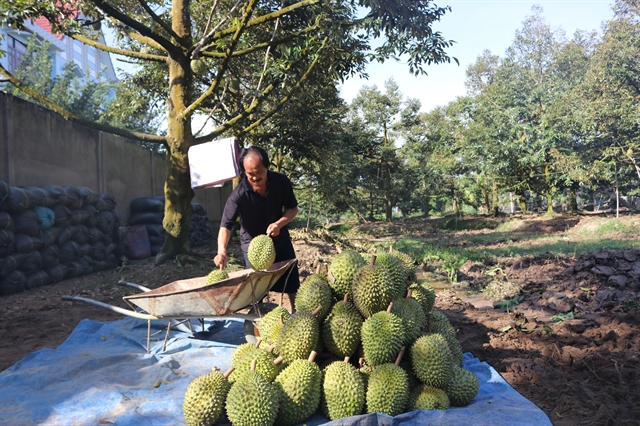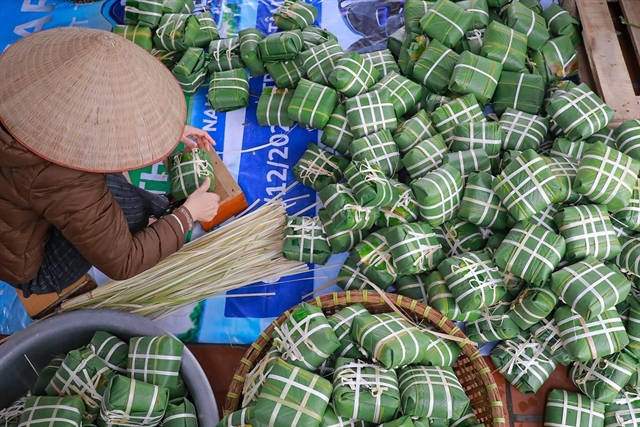 Society
Society

The Cửu Long (Mekong) Delta plans an additional 450,000ha under fruit and seafood production by 2030 as part of the Ministry of Agriculture and Rural Development’s effort to shift the region’s farming model toward more sustainable agriculture practices.

|
| A farmer harvests durian in Tiền Giang Province’s Cai Lậy District. The Mekong Delta region is planning to expand fruit and seafood production. — VNS Photo Nguyễn Diệp |
MEKONG DELTA — The Cửu Long (Mekong) Delta plans an additional 450,000ha under fruit and seafood production by 2030 as part of the Ministry of Agriculture and Rural Development’s effort to shift the region’s farming model toward more sustainable agriculture practices.
The region plans to reduce rice farming areas and expand areas producing fruit and seafood in an effort to respond to climate change.
Rice export turnover is estimated at US$1.9 billion for the first seven months of this year, a year-on year increase of 10.9 per cent. Rice production, however, will be reduced to meet sustainable agriculture and climate-change adaptation by 2030 with a vision to 2045.
Under the plan, by 2030 the delta will have about 1.6 million hectares of rice farming areas, a decrease of 300,000ha. Paddy output will reach 17.3 million tonnes per year, down 6.3 million tonnes.
Unproductive rice fields due to saline intrusion will be shifted to fruit tree production.
By 2030, the delta is expected to have about 650,000ha of fruit growing areas, up 150,000ha. Total area for seafood production in the delta will be 1.3 million hectares, an increase of 300,000ha.
The aim is to increase fruit and seafood exports and produce high-yield and quality fruit varieties resilient to climate change.
Transfer of sustainable farming practices, advanced farming techniques and effective farming models will be promoted to reduce production costs. Investment in fruit processing and preservation technology will also be needed.
In addition, hi-tech fruit processing industrial parks and clusters will be developed in association with specialised fruit growing areas and logistics services.
Products will have to meet traceability requirements and import markets’ strict regulations and standards.
To increase exports to new markets, the agricultural sector will enhance trade promotion activities.
The aquaculture industry will increase the area for shrimp-rice farming, while shrimp and tra fish (pangasius) industries will ensure environmental protection and sustainable development.
The delta, the country's largest rice producer, has faced severe drought and saline intrusion in recent years. In the 2019-20 dry season, severe saltwater intrusion affected more than 58,000ha of rice fields in the delta, causing losses of tens of billions of Vietnamese đồng.
Switching to other crops in response to climate change is necessary for sustainable production in the region. — VNS




